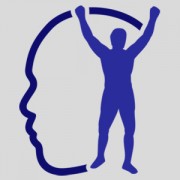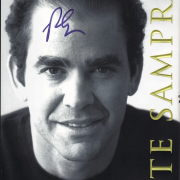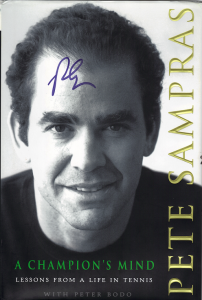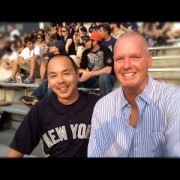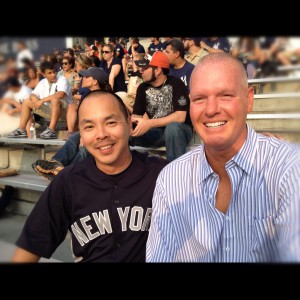MESSAGE #1650 SUFFERING IS OPTIONAL
Today’s message is especially dedicated to the great Mark J. Larose in Clinton, New Jersey.
As athletes, coaches, students, parents and humans, we often get “stuck” in a situation we don’t like, e.g., a difficult competition, test, a difficult child, or natural disaster. As a result, many of us suffer. And our performance/state of mind suffers.
Or so we think.
The truth is, no competition, test, child, or natural disaster can make us suffer. There is only one thing that can make us suffer, and that is our own thoughts. Sad thoughts create sad feelings. Grateful thoughts create grateful feelings. If you have a garden and you plant strawberry seeds, you will get strawberries. If you plant raspberry seeds, you will get raspberries. You can’t get strawberries from raspberry seeds. Your well-being is the same way: you can’t get grateful feelings from sad thoughts. Don’t get me wrong, I’m not saying you shouldn’t have sad thoughts. What I am saying is that it is your choice whether you stay with sad thoughts or just let them pass.
In life, most of us think that something, someone, or some situation makes us feel a certain way. This couldn’t be farther from the truth. If something outside of us truly could affect our feelings, then everyone would have the same reaction to the same situation.
Recently, here on the East Coast, Hurricane Sandy caused some major damage and many people were suffering, sad, frustrated and angry. But not everyone. Some people were extremely grateful for what they have in life. Others were inspired to help friends, family, neighbors, and strangers who didn’t have power, heat or homes. We all have separate realities, meaning we all see things differently. Therefore, it is not the “outside” that creates our happiness or sorrow, it is the “inside” that creates it. And that “inside” is our thoughts.
Recently, my good friend, Mark J. Larose posted on Facebook, “OK..I know there is much suffering going on…at different levels for many people. So, post here…Tell me something you are Thankful for Today. Anything. For me, I thankful that my friends are safe. Some are cold, and without power, but they weren’t hurt.”
I responded with:
I am thankful for knowing no matter what happens in life, we can all CHOOSE how we look at the situation or our circumstances. Many people are angry at “Sandy” for doing so much damage. Part of me is grateful for “Sandy” because she/he was a reminder that like a hurricane, we could have disaster happening all around us, but we (the eye of the hurricane) can still be calm and at peace. The eye of the hurricane has no clouds and blue skies can be seen from it. To me, life is not about what happens to us, but what we THINK about what happens to us.
I admit, at times during this past week I have felt sad, angry, and frustrated, but I know they were coming from my own thinking. And I know that it is normal. When I recognize that I am just thinking sad, angry, and frustrating thoughts, and I don’t need to keep thinking about them, my mood naturally rises. It’s that simple.
Having said that, I hope this message finds you and your loved ones safe and sound. I know some of you have lost personal items, had damage, and have been evacuated from your homes, but please remember, situations are inevitable, but suffering is optional.
Please feel free to contact me if you should need any assistance, a charging station, or a hot shower.
With love and gratitude,
Ed

